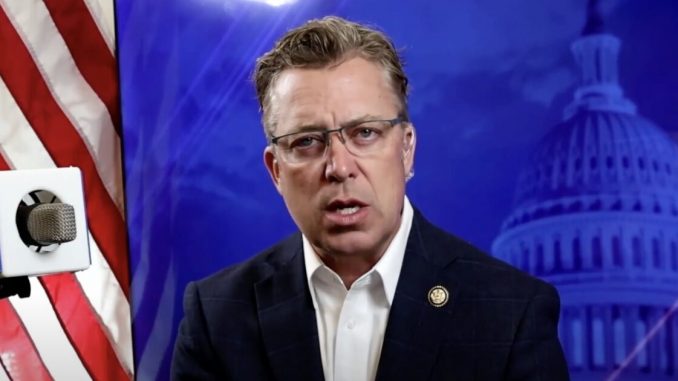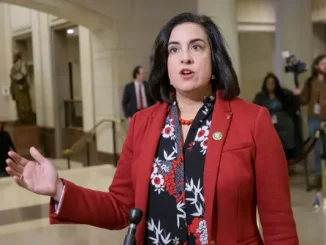
| Published June 27, 2025
🏛️ Political Attacks & Deportation Push
-
Rep. Andy Ogles (R‑TN) has formally written to former Florida AG Pam Bondi, urging the DOJ to open denaturalization proceedings against Mamdani. He cited Mamdani’s 2017 rap lyric praising the “Holy Land Five”—leaders from a charity convicted of funding Hamas—as potential evidence of undisclosed affiliations when applying for citizenship in 2018.
-
Ogles accompanied his letter with Islamophobic rhetoric on X, referring to Mamdani as “little muhammad” and branding him “antisemitic, socialist, communist,” asserting he “will destroy the great City of New York.”
⚖️ Legal Realities of Denaturalization
-
U.S. law is stringent here: To revoke citizenship, authorities must prove Mamdani willfully lied or concealed material facts during his naturalization. Expressive speech—like rap lyrics—does not inherently meet this standard.
-
Legal experts stress that praising a convicted group is protected speech, and unless the DOJ can show false declaration under oath, denaturalization is unlikely.
🌐 Political Weaponization & Broader Backlash
-
The New York Young Republican Club also urged citizenship revocation, citing the outdated Communist Control Act of 1954—a move experts call legally dubious.
-
Post-primary, Mamdani has been subject to increasing Islamophobic attacks and death threats, particularly from conservative circles, including figures like Elise Stefanik and Nancy Mace.
🧾 Mamdani’s Response & Public Perception
-
Mamdani characterized the deportation campaign as a continuation of Trump-era bigotry, noting the threats he’s received from political opponents.
-
He reaffirmed his legal standing: naturalized in 2018, with no evidence of dishonesty or concealment during the process.
 Implications
Implications
⚖️ Legal Implications
-
Dangerous precedent: Attempting to denaturalize a U.S. citizen for protected speech—especially artistic or political expression—could erode First Amendment protections.
-
Weaponizing immigration law: This raises alarm about using denaturalization not to address fraud, but to punish ideological dissent, setting a precedent for targeting other naturalized citizens.
-
Low legal viability: Without concrete proof of fraud or misrepresentation during his naturalization, legal experts agree the case is weak—yet the political damage is already done.
🗳️ Political Implications
-
Chilling effect on immigrant politicians: This could discourage naturalized citizens from entering politics or expressing dissenting views, fearing their citizenship might be used against them.
-
Polarization strategy: The move appeals to a political base energized by nationalist rhetoric, Islamophobia, and suspicion of leftist politics—but could backfire among moderates and immigrant communities.
-
Mobilizing progressives: Mamdani’s supporters see this as an authoritarian overreach, potentially strengthening his base in New York City’s diverse electorate.
🧕🏽 Social & Cultural Implications
-
Rising Islamophobia: The push has fueled anti-Muslim rhetoric online, with public figures referring to Mamdani as a “terrorist” or “jihadist,” escalating hate speech and threats.
-
Racial and religious profiling: Critics say this reinforces dangerous narratives equating Muslim identity and political activism with terrorism or disloyalty.
-
Civic belonging questioned: The controversy challenges the idea that naturalized citizens are as secure or “American” as native-born ones—especially when they hold controversial views.
💬 Public Discourse Implications
-
Art vs. allegiance: The use of a 2017 rap lyric as a potential basis for revoking citizenship raises deeper questions about artistic freedom, interpretation, and political intent.
-
Media narrative split: Right-wing outlets frame Mamdani as a threat to national security; mainstream and left-leaning media highlight the assault on civil liberties and due process.
💬 Overall Takeaway:
The controversy surrounding Zohran Mamdani’s past statements and radical affiliations raises serious questions about national loyalty, the integrity of the naturalization process, and the influence of far-left ideologies in American politics. When an elected official praises individuals convicted of aiding terrorist organizations and embraces policies that undermine law enforcement and traditional values, it’s not unreasonable for lawmakers and citizens to call for accountability.
Whether or not legal action succeeds, the Mamdani case highlights a deeper problem: a growing class of politicians who openly challenge American institutions while benefiting from them. It’s a reminder that citizenship should come with responsibility—and that voters must remain vigilant about who they entrust with leadership, especially in cities as influential as New York.





Be the first to comment